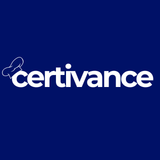National Fresh Squeezed Juice Day

Celebrated: January 15
A Fresh Start in Every Sip
January 15 is National Fresh Squeezed Juice Day—a celebration of simple ingredients, powerful nutrients, and the joy of pressing nature’s bounty into a glass. Whether you’re all about oranges, green juice, or beet-carrot-ginger combos, there’s no denying the revitalizing power of freshly squeezed juice.
Unlike pasteurized store-bought options, fresh juice retains more enzymes, flavor, and nutrients—especially if it’s consumed soon after pressing. It can be a vibrant way to get your daily dose of vitamins and minerals, particularly vitamin C, potassium, and folate. And let’s face it: it just tastes better when it’s straight from the fruit.
Juicy Facts
- The first home juicers were popularized in the U.S. in the 1930s, largely due to rising awareness of vitamin C.
- Juicing is a key part of many modern wellness routines, including detox diets and morning energy boosts.
- Store-bought juices are usually pasteurized to extend shelf life, but this reduces certain heat-sensitive nutrients.
- Cold-pressed juices (using hydraulic presses) preserve more nutrients than traditional centrifugal juicers.
How to Celebrate National Fresh Squeezed Juice Day
- DIY Juice Bar: Try a variety of fresh fruits and veggies at home—pair citrus with greens or roots with apple.
- Support a Local Juicery: Visit your neighborhood juice bar and ask about their ingredients and processing methods.
- Try Something New: Ever juiced fennel? Celery? Pineapple with turmeric? Get adventurous!
- Make It a Habit: Start your morning with a small juice shot for a quick boost of natural energy.
Juice Safety Tips from Certivance
Fresh-squeezed juice is delicious—but it’s also perishable and can be risky if not handled correctly:
- Keep It Cold: Fresh juice should be refrigerated immediately and consumed within 24–72 hours.
- Sanitize Equipment: Blades, juicers, and containers must be thoroughly cleaned to prevent bacteria growth.
- Wash Produce: Even when peeling, always wash fruits and veggies before juicing to avoid contamination from surface pathogens.
- Raw Juice Warning: Unpasteurized juice should be labeled appropriately and avoided by at-risk groups (young children, elderly, pregnant individuals, and immunocompromised).
Whether you're running a juice bar, manufacturing raw juice, or simply blending at home, Certivance provides regulatory expertise and food safety planning to keep your juice fresh and safe.
Safe Sips, Happy Customers
From cold-pressed operations to farm markets and co-packers, Certivance helps juice producers and retailers meet compliance, manage HACCP plans, and protect their brand. Let’s work together to juice safely.





